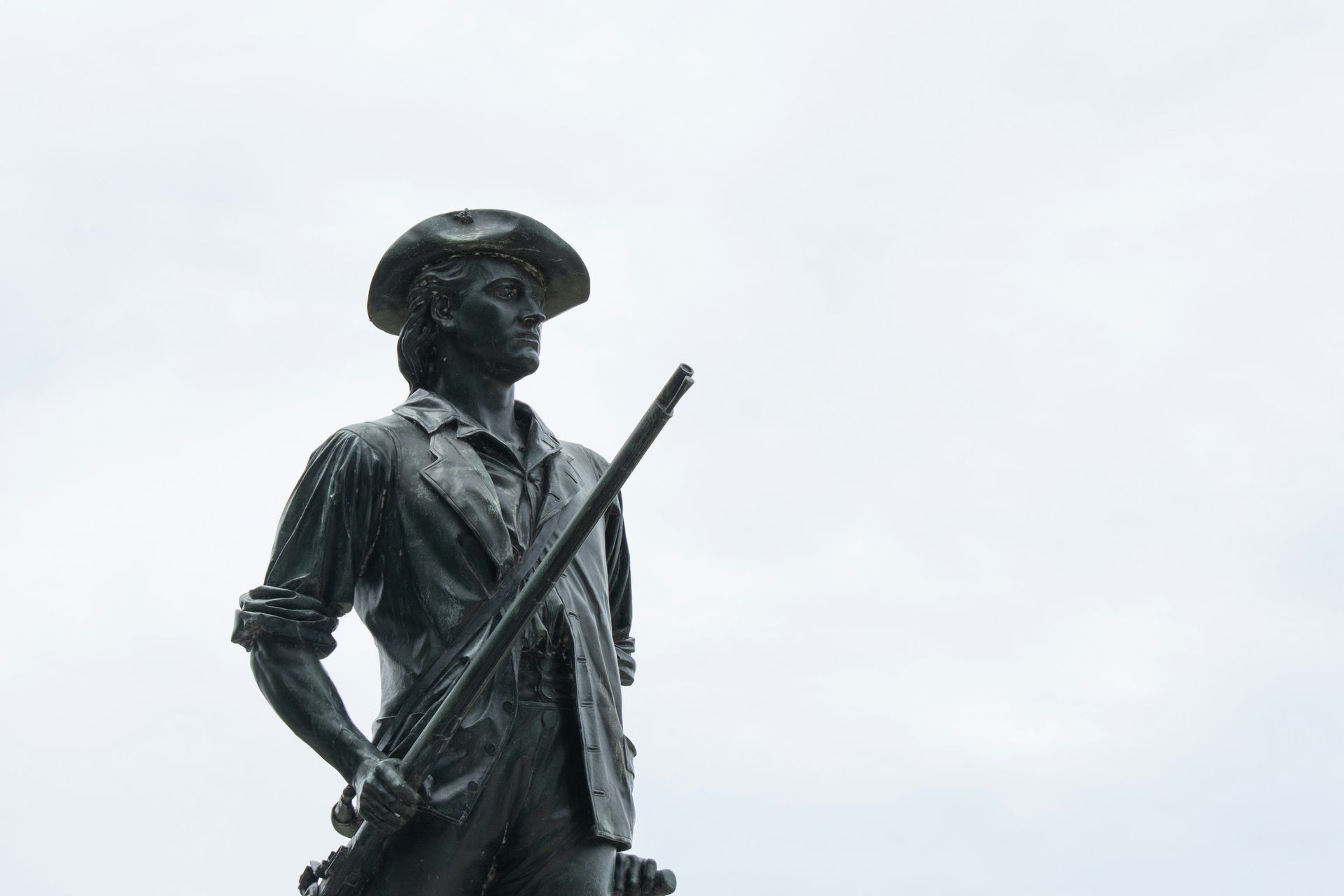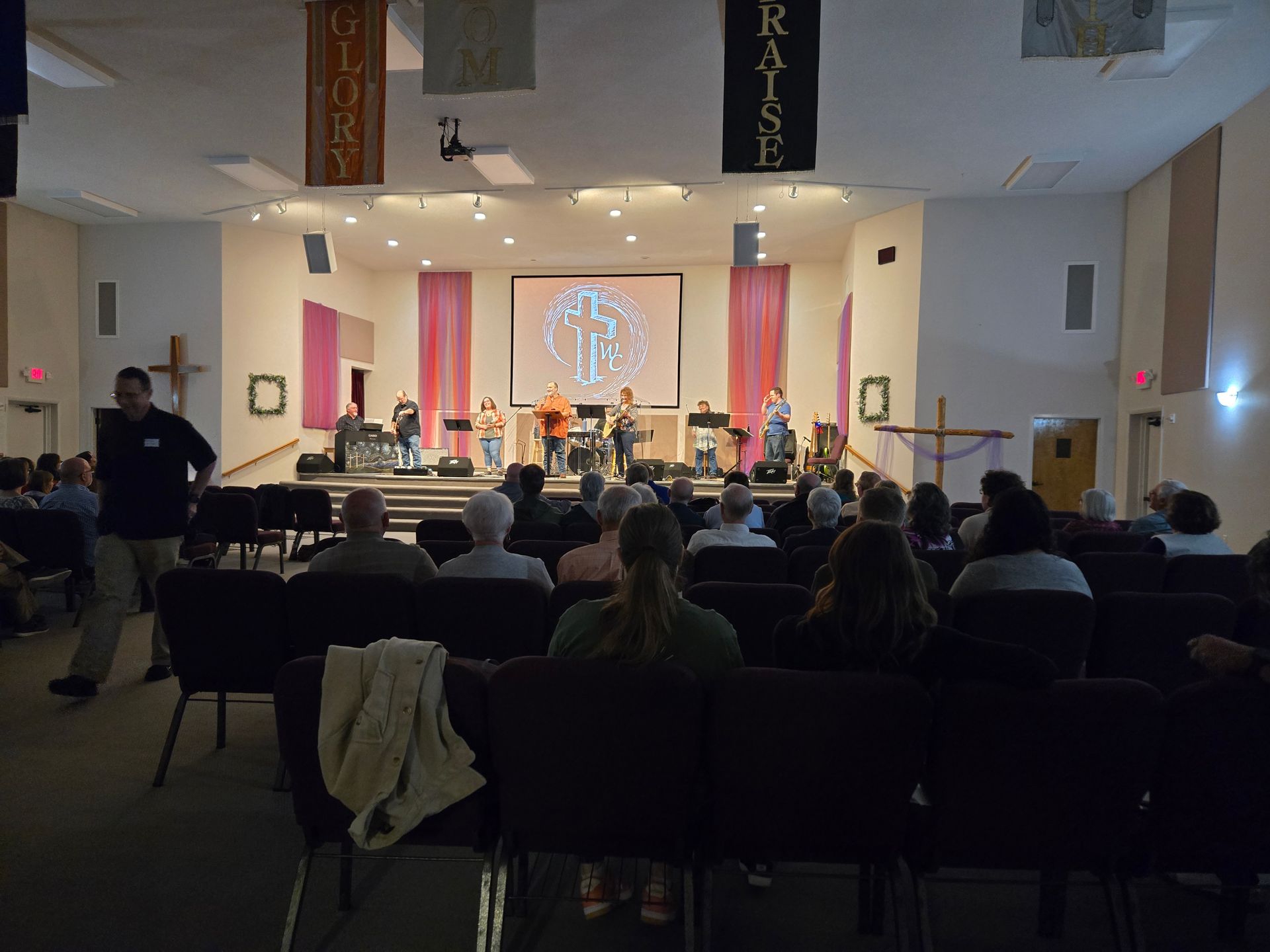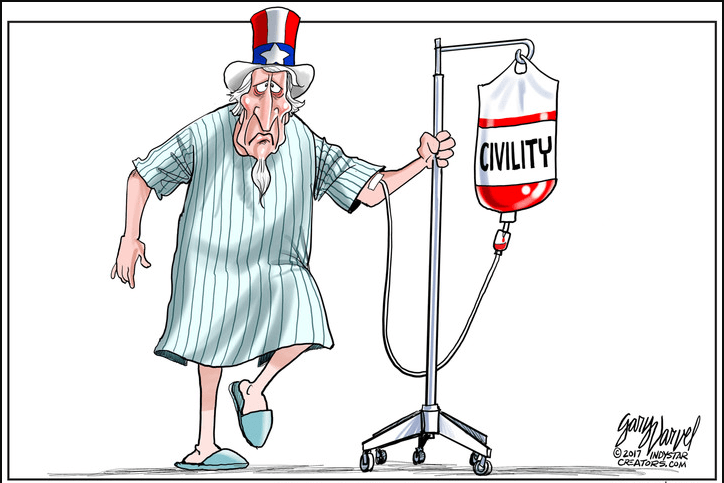The Search for Civility
A few days ago, a comedian viciously insulted a White House employee. Meanwhile, the President simultaneously unloaded on his opposition at a campaign rally. This space quotes neither.
Rank incivility has increased dramatically in American politics. Perhaps the trend began with the Tea Party, which deliberately strategized to disrupt town hall meetings led by Democratic politicians. Insurgents scattered about the hall, interrupting and shouting. It worked, and they won the next election. Democratic activists are copying these tactics, and Congressional-level town halls are an endangered species.
Of course, politics has never been bean-bag, as Bill Clinton famously observed, and from the earliest days of the republic, incivility has abounded. In the election of 1800, one of the dirtiest in history, Federalists made a campaign issue of Thomas Jefferson’s extramarital relationship with a slave, Sally Hemings, and Jefferson dispatched a sleazy journalist to get dirt on John Adams.
By the post-World War II era, however, politics had grown more civil, Joe McCarthy notwithstanding. Dwight Eisenhower pitched himself as a soft-spoken, golfing grandfather, and John F. Kennedy quoted poetry. Again, politics is always rough, but at least civility co-existed with the sharp elbows.
Those days are over.
Is all this depressing? Here’s something you can do about it: Practice old-fashioned Brethren nonconformity in a modern way by being civil.
Once nonconformity contributed to the core of the Brethren faith. Early Brethren vigorously separated from the perceived sinfulness of the mainstream culture, particularly in plain dress. Every morning when Brethren dressed, they reminded themselves of their faith by donning garb that made them different. They literally wore their religion on their sleeves. Other forms of non-conformity included non-resistance, trine immersion baptism, hairstyles, non-swearing (no courtroom-type oaths), under-consumption of material goods, free ministry, anti-slavery, and plain meetinghouses. It was a long list.
Most of us have given up most of these practices, but the current tide of incivility provides Brethren with a constructive opportunity to reinvent nonconformity.
Incivility is a crude violation of many of Jesus’s teachings, starting with the Golden Rule, and relatively easy to identify when coming from those we dislike. The higher witness is walking away from incivility done by those who represent our viewpoint.
Second, Brethren can withdraw from incivility in daily life. Giving the benefit of the doubt, overlooking personality flaws, forgiving errors of judgment, and initiating conversation are increasingly scarce, and Brethren who practice these forms of civility will acquire a reputation for it. They will be conspicuous. Brethren know that this conduct is indispensable to well-functioning congregational life, and taking these attitudes into the workplace and larger society will make them in the world but not of it. Their practice of Christian charity will be obvious, and they will be different, which is the essence of old-fashioned nonconformity but in a way highly relevant to modern life.
Wear your religion on your sleeve. Be the light of the world. Resist incivility. Be nice. Practice civility.
Dr. Stephen Longenecker, Ph.D. is the Edwin L. Turner Distinguished Professor of History at Bridgewater College, and author of six books, including
Gettysburg Religion: Refinement, Diversity,
and
Race in the Antebellum and
Civil War Border North. Stephen serves as a distinguished historian in the Church of the Brethren and an expert voice on Brethren in early America.











